Link: Apply now for the Chase Sapphire Reserve® Card
The Chase Sapphire Reserve® Card is one of the most popular premium credit cards on the market. While the card has a hefty annual fee, it’s easy to justify thanks to the great rewards structure, the annual travel credit, and the lounge access perk. If you travel frequently, and spend a decent amount on dining and travel, then this card is absolutely for you.
In this post, I wanted to provide an in-depth review of the Chase Sapphire Reserve, and also compare it to the Chase Sapphire Preferred. Is the Chase Sapphire Reserve worth it?
In this post:
Chase Sapphire Reserve Basics For June 2025
The Chase Sapphire Reserve is a card that has it all — a great welcome bonus, excellent perks, a rewarding points structure, valuable lounge access, and much more. The Chase Sapphire Reserve was built on the fundamentals of the Chase Sapphire Preferred® Card (review), so is the higher annual fee of the Sapphire Reserve warranted?
Sapphire Reserve Welcome Bonus: 60,000 Points ($900 Worth Of Travel)
The Chase Sapphire Reserve is offering a welcome bonus of 60,000 Ultimate Rewards points after spending $5,000 within three months.
At an absolute minimum, if you have the Sapphire Reserve, then Ultimate Rewards points can be redeemed for 1.5 cents each toward a travel purchase, meaning that 60,000 Ultimate Rewards points will get you $900 worth of travel. As I’ll explain below, there are ways to get way more value out of the points than that.
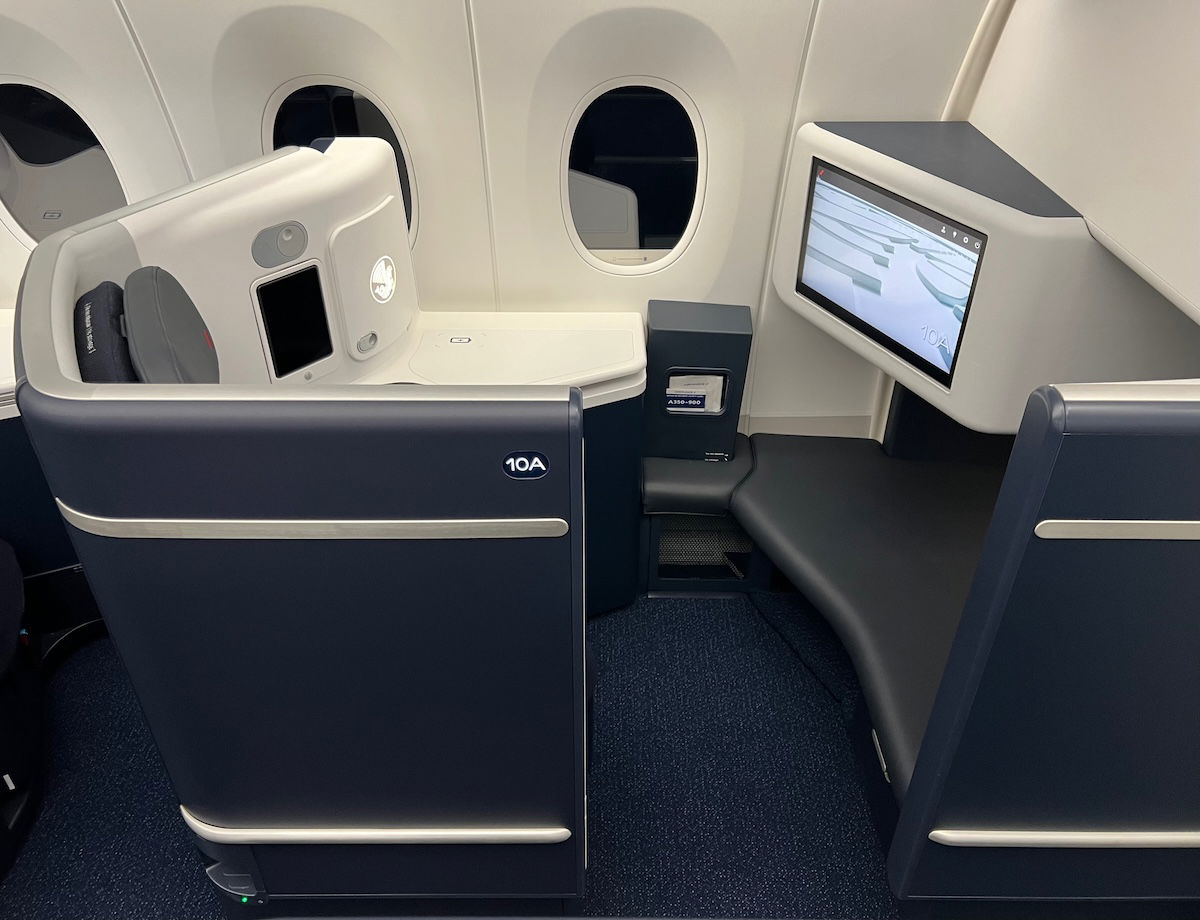
Card Bonus Eligibility & Chase 5/24 Rule
If you’re applying for the Chase Sapphire Reserve, you can only be approved if you don’t currently have any Sapphire card, and haven’t received a new cardmember bonus on a Sapphire card in the past 48 months (this includes the Sapphire Preferred). On top of that, Chase’s general application rules apply, including the 5/24 rule, though anecdotal reports suggest this is no longer being consistently enforced.
How High Of A Credit Score Do You Need To Be Approved?
Credit card issuers don’t publish a minimum credit score required to be approved for a card, though you do in general, need excellent credit to get approved for this card. I wouldn’t apply for the Sapphire Reserve if my credit score were under 720, and ideally, it would be over 740.
It’s possible to get approved with a lower score, and it’s also possible to be denied with a higher score. There are many factors that go into card approval, including your income, your existing relationship with Chase, and more.
Product Changing
Chase will often let you product change from one card to another (either personal-to-personal or business-to-business), assuming you’ve had the card for at least 12 months. For example, one strategy could be to apply for the Sapphire Preferred, use it for 12 months, and then later you can upgrade to the Sapphire Reserve, if you’d like. You’ll have to call Chase to find out the options available on your account.
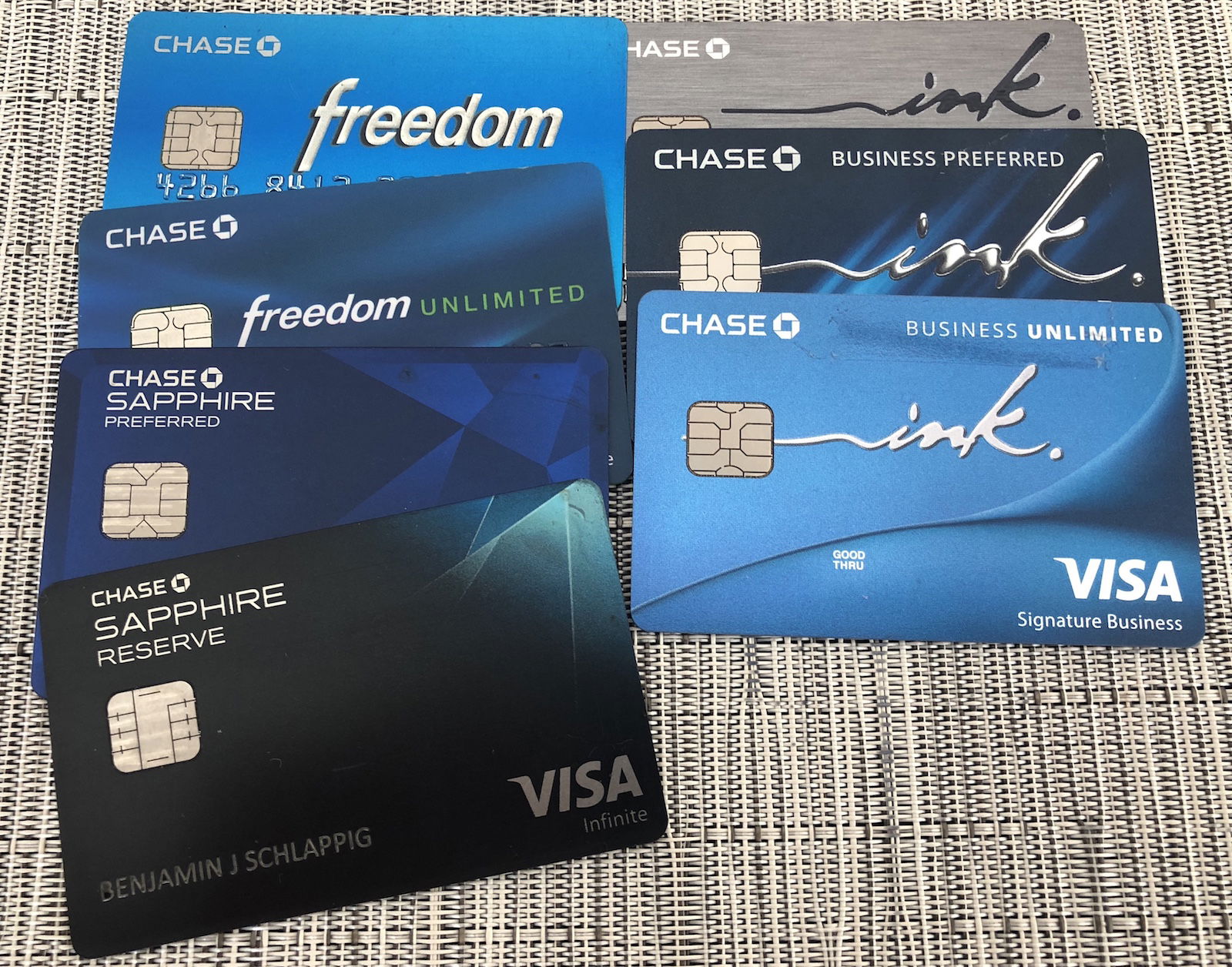
Sapphire Reserve $550 Annual Fee
The Sapphire Reserve has a $550 annual fee. Among the super-premium credit cards out there, this is in line with what we have come to expect. As I’ll explain below, in reality this card shouldn’t be costing anyone even nearly that much every year, though.
$75 Authorized User Fee
You can add authorized users to the Sapphire Reserve, and there’s a $75 fee per person. This can be well worth it, because not only do authorized users get your increased points earning rates, but they also get a Priority Pass membership (including unlimited access to Chase Sapphire Lounges), Visa Infinite benefits, and more.
Earning Chase Sapphire Reserve Points
The Chase Sapphire Reserve has two very well-rounded bonus categories on spending, and some other temporary and/or more niche bonus categories.
When picking a credit card, I always recommend getting one that has bonus categories that match up with your spending profile. Some cards offer bonus points on dining, gas stations, supermarkets, etc., so pick the card that works best for you.
Sapphire Reserve 3x Points On Travel
The Sapphire Reserve offers 3x points on travel purchases globally. To me, this is the single best card when it comes to a broad travel bonus category, given all of the things that this covers. Chase’s travel category includes the following:
airlines, airports, car rental agencies (including truck, trailer, and RV), cruise ships, hotels and motels, timeshares, local and commuter transportation (including trains, buses, taxis/limos, ferries, bridges, tolls and parking), travel agencies
I value Ultimate Rewards points at ~1.7 cents each, so to me, that’s the equivalent of a 5.1% return on those purchases, which is pretty incredible.

Sapphire Reserve 3x Points On Dining
The Sapphire Reserve offers 3x points on dining purchases globally. Chase’s dining category includes the following:
merchants whose primary business is sit-down or eat-in dining, including fast food restaurants as well as fine dining establishments.
While there are other competitive cards for dining, this is a solid bonus for this spending, as I value this at a 5.1% return.

Sapphire Reserve 10x Points With Chase Dining
The Sapphire Reserve offers 10x points on dining booked through Chase Sapphire Dining. This is essentially intended to be a curated dining platform for cardmembers, that includes special events, like at-home dining events, special Michelin-star restaurant reservations, and more.
As of now, I’d say this is of limited use to most, though I hope that we see this platform expanded over time because it has potential. Fortunately, you still earn 3x points on other dining purchases.
Sapphire Reserve 5x Points With Lyft
Through September 2027, the Sapphire Reserve offers 5x points on Lyft purchases. I’ve found this to be incredibly useful, as to me that’s the equivalent of a 8.5% return on Lyft spending, which is awesome. Additionally you’ll receive a $10 monthly Lyft ride credit.

Sapphire Reserve 10x Points On Hotels & Rental Cars
The Sapphire Reserve offers 10x points on hotels and rental cars booked through the Chase Travel Portal. This doesn’t apply when you book directly, but rather only when booking a hotel or rental car through the Ultimate Rewards portal. Given that 10x points is the equivalent of a 17% return, this would make sense for some, though it is limiting.
Often hotels and car rental companies will have better prices if you book direct (and you can still earn 3x points), so personally, I don’t use this all that much.
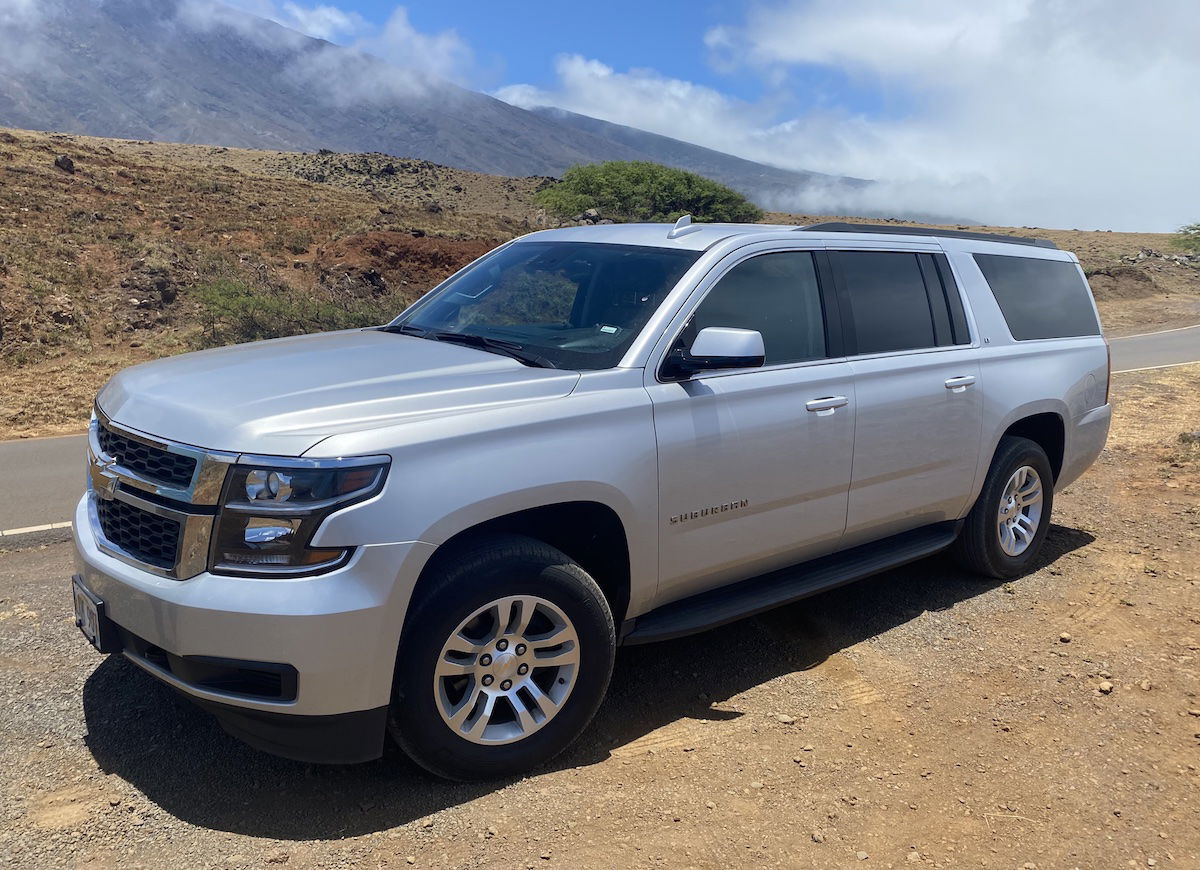
Sapphire Reserve 5x Points On Flights
The Sapphire Reserve offers 5x points on flights booked through the Chase Travel Portal. While earning 5x points on flights is great, it is limiting to have to book directly through Chase. Personally I prefer to book directly with airlines, since it’s then easier to change or cancel flights (and you can still earn 3x points).
Nonetheless if you’re a cardmember it’s worth keeping this in mind, since there are situations where booking through Chase could make sense.
No Foreign Transaction Fees
The Sapphire Reserve has no foreign transaction fees, so this is an excellent card to use for purchases globally, since you can earn valuable rewards while not being stuck with those fees, which are sometimes 3%.
Best of all, I find that a large percentage of my purchases abroad are in the travel and dining categories, so I can avoid foreign transaction fees while earning 3x points — that’s the best of both worlds!

Redeeming Chase Sapphire Reserve Points
The Chase Sapphire Reserve earns Chase Ultimate Rewards points, which I find to be one of the most valuable flexible points currencies. Not only that, but having the Sapphire Reserve means that you can redeem your points for more than you could if you had other cards.
As I’ll explain below, there are a couple of ways that you can most efficiently redeem your Ultimate Rewards points.
Redeem Points For 1.5 Cents Each Toward Travel
Ultimate Rewards points can be redeemed toward the cost of travel purchases through the Chase Travel Portal. This means you can redeem points for all kinds of travel purchases, ranging from flights to hotels to rental cars.
The value you get per point varies based on which card you have:
- If you have the Sapphire Reserve, then all your Ultimate Rewards points can be redeemed for 1.5 cents each
- If you “just” have the Sapphire Preferred or Ink Preferred, points can be redeemed for 1.25 cents each
In other words, if you get the Sapphire Reserve you could use your Ultimate Rewards points to book a $900 flight for 60,000 points. This allows you to redeem with no blackout dates, and avoid the complexity of frequent flyer programs.
Furthermore, when you redeem your points toward flights through the portal you can even accrue points for those flights.

Transfer Points To Airline & Hotel Partners
My favorite way to redeem Ultimate Rewards points is to transfer them to one of the Chase Ultimate Rewards airline or hotel partners. Points transfer at a 1:1 ratio, and this is a great option if you want to book aspirational travel, like staying at a five star hotel or redeeming for first or business class travel. Just make sure you study up on this, and learn the tips & tricks of maximizing points.
Below are the Ultimate Rewards transfer partners.
Airline Partners | Hotel Partners |
|---|---|
IHG One Rewards | |
United MileagePlus | |
How Should You Redeem Ultimate Rewards Points?
Being able to redeem points for 1.5 cents each toward a travel purchase (and temporarily for dining) is a great option, especially when you consider that you won’t be dealing with any capacity controls or blackout dates.
Other transferable points currencies typically let you redeem points for roughly one cent each toward a travel purchase, so that’s quite a difference.
However, my favorite use of Ultimate Rewards points is still transferring them to partner airlines and hotels. My personal favorites are Air Canada Aeroplan, Air France-KLM Flying Blue, British Airways Executive Club, Singapore KrisFlyer, and World of Hyatt.
Why? Because if you’re redeeming for aspirational travel, this is a way to get a lot more value. For example, the Park Hyatt Kyoto regularly costs $2,000+ per night when paying cash. Meanwhile, if you transfer points to World of Hyatt, you can book it for 35,000-45,000 points per night.

The same is true for flights. International first class tickets can cost $20,000+. Meanwhile, you transfer points to Virgin Atlantic Flying Club, you could book All Nippon Airways first class for 72,500-85,000 points one-way between the United States and Japan.
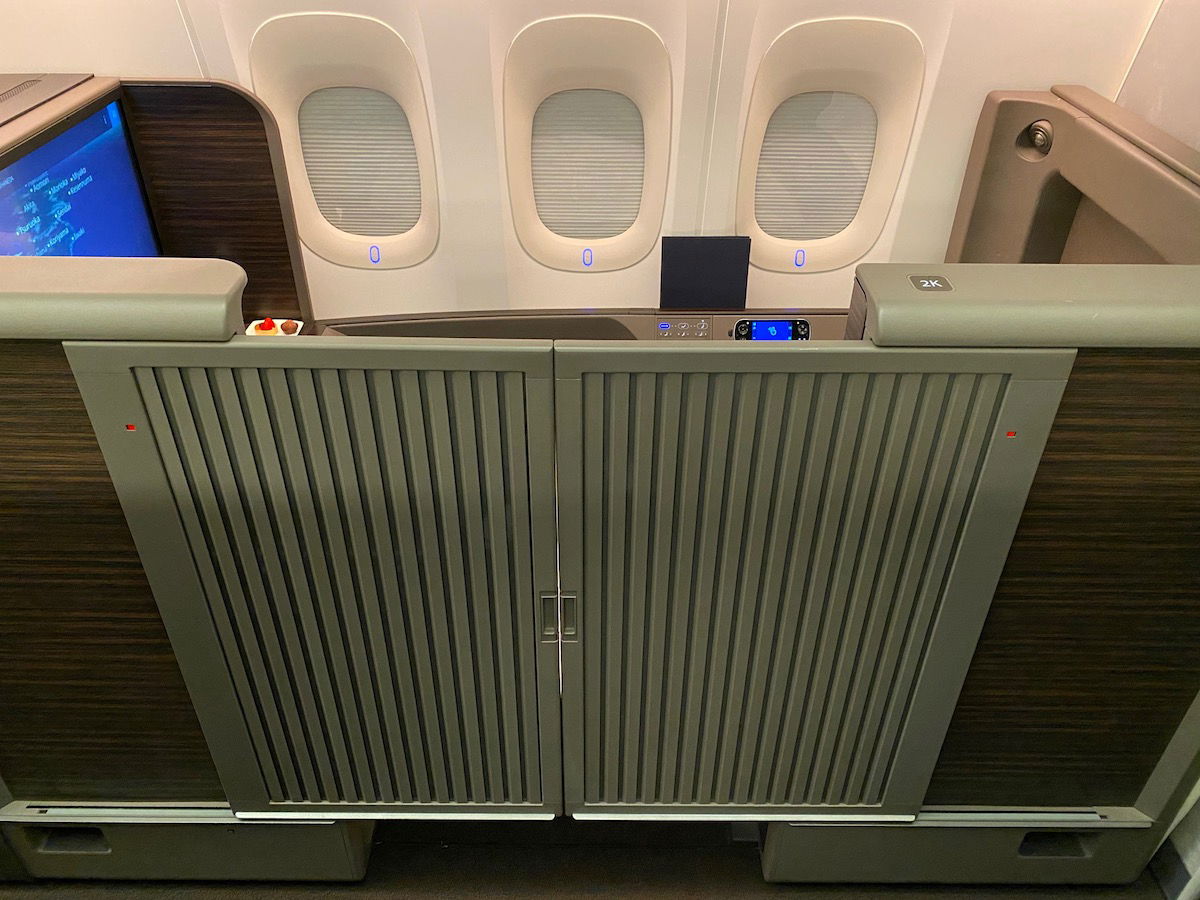
Chase Sapphire Reserve Lounge Access
The Chase Sapphire Reserve offers excellent airport lounge access perks, and this is something that has recently become even more valuable. This could be a great reason to not only pick up the card, but also to add authorized users to the card.
Priority Pass Membership
The Chase Sapphire Reserve comes with a Priority Pass membership, which gets you access to the world’s largest collection of independent lounges. Best of all, this membership allows you to take two guests with you at no additional cost.
Priority Pass has 1,300+ airport lounges around the world, so access to these lounges will prove useful to just about any traveler.

Access Chase Sapphire Lounges
The Chase Sapphire Reserve gets you access to Chase Sapphire Lounges by The Club. These lounges are exceptional, among the best credit card lounges out there. While the lounges in the United States can be accessed once annually for all Priority Pass members, those with a Priority Pass membership through the Chase Sapphire Reserve receive unlimited visits annually, with the ability to bring two guests.
This new network of lounges is a huge reason to consider picking up this card, as these lounges really are a treat, especially the ones at New York LaGuardia and Boston Logan.

Chase Sapphire Reserve Benefits
What really sets the Chase Sapphire Reserve apart is the incredible benefits that it offers. These benefits help offset the annual fee, and for many will more than justify it, not even taking into account the welcome bonus, 3x points on spending, and more. The card offers all kinds of perks that will make it worthwhile.
$300 Annual Travel Credit
The Sapphire Reserve offers an incredible $300 annual travel credit. While quite a few credit cards offer credits, there are typically lots of strings attached. That’s not the case with the Sapphire Reserve.
There’s no registration required, and any purchases that are coded as travel will be reimbursed automatically. This could include flights, Uber rides, taxis, train tickets, hotels, and more. You don’t have to use the entire credit in one transaction but rather can use it across as many transactions as are needed.
Account Anniversary Year Definition
The $300 annual travel credit doesn’t reset with the calendar year, but rather resets each account anniversary year. This would be based on 12 billing cycles following when you receive the card.
How To Track Your $300 Credit
When you go to the Ultimate Rewards homepage and log into your account, click on the “Your Dashboard” section, at the top right of the page. There you should see a section that shows how much of your spending toward the credit you’ve completed, and it will also show when your anniversary year resets, which would be when you get your next credit.
Is This Really A $250 Annual Fee Card?
While the Sapphire Reserve has a $550 annual fee, in reality, this card shouldn’t be costing anyone more than $250 per year, by the time you factor in the $300 annual travel credit.
Anyone who gets this card should spend at least $300 per year on travel. If you don’t, this probably isn’t the card for you, given that it offers travel rewards. That’s what has made this card so accessible for many — while you’re paying a much higher fee upfront, the card should only cost you at most $250 per year.
DoorDash DashPass & Monthly Credit Benefit
The Chase Sapphire Reserve offers a DoorDash DashPass membership. The membership is valid for at least 1 year when you activate by December 31, 2027 (full details).
With DoorDash DashPass, you pay a $0 delivery fee when ordering from thousands of restaurants and grocery stores nationwide. Just place an order totaling at least $12 from an eligible restaurant or $25 from an eligible grocery store, and you’ll get a $0 delivery fee and a reduced service fee.

Global Entry, NEXUS, Or TSA PreCheck Credit
The Chase Sapphire Reserve offers a Global Entry, NEXUS, or TSA PreCheck credit once every four years. Just charge the membership fee to your card, and it will automatically be reimbursed. It doesn’t matter who the fee is being paid for, as long as you charge it to your eligible card.
Why You Should Register For Global Entry Over TSA PreCheck
If you are going to take advantage of this perk, I’d highly recommend registering for Global Entry over TSA PreCheck. TSA PreCheck gets you expedited US airport security screening, while Global Entry gets you expedited US immigration clearance.
Why should you register for Global Entry and not Pre-Check? Because Global Entry also comes with TSA PreCheck, while the inverse isn’t true (signing up for TSA PreCheck doesn’t get you Global Entry). NEXUS is a program that is particularly useful if you’re doing regular land crossings at a US/Canada border.
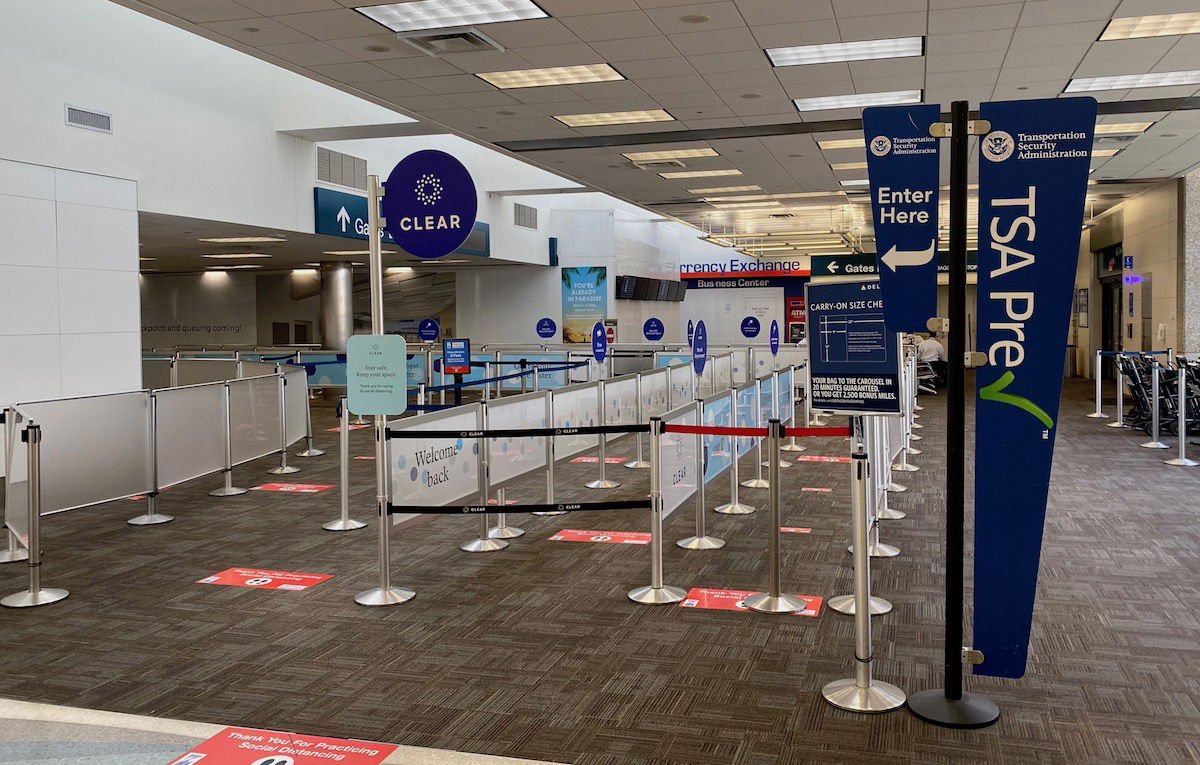
The Luxury Hotel & Resort Collection
Those with the Chase Sapphire Reserve get access to The Luxury Hotel & Resort Collection, offering additional benefits at 1,000+ luxury hotels around the world. When booking through the program at an eligible rate you receive breakfast for two, complimentary Wi-Fi, a room upgrade if available, early check-in and late check-out if available, and a special property amenity.

Primary Rental Car Coverage
The Chase Sapphire Reserve offers primary collision damage waiver coverage against damage up to the cost of most rental car vehicles provided you decline the CDW coverage offered by the rental agency. This includes economy through luxury class vehicles, vans that carry fewer than seven passengers, and SUVs. You’ll want to check your cardmember agreement for full details.
Travel & Purchase Coverage
The Sapphire Reserve is a Visa Infinite Card, so comes with all kinds of great travel and purchase protection.
What’s especially awesome is that you earn triple points for travel with the card, so you can put your travel purchases on this card, and then automatically be covered with the benefits. Airline mileage award tickets qualify for this benefit as well, assuming you put the taxes on the Reserve Card.
Here are the basic details of the coverage, though you’ll want to consult the cardmember agreement for all the details:
Sapphire Reserve Visa Infinite Benefits | Details |
|---|---|
Baggage Delay Benefit | The Baggage Delay benefit provides reimbursement for the emergency purchase of essential items, such as toiletries, clothing, and chargers for electronic devices (limit one per device), when Your Baggage is delayed while on an eligible Trip. The maximum benefit is one hundred ($100.00) dollars per day up to a maximum of five (5) days. The Baggage Delay benefit applies if Your Baggage is delayed or misdirected for more than six (6) hours and for each additional twenty–four (24) hour period Your baggage is delayed after the initial six (6) hours for a maximum of five (5) days. |
Lost Luggage Reimbursement | The Lost Luggage benefit provides reimbursement for the difference between the actual cash value (replacement cost less depreciation) and any reimbursement provided by the Common Carrier for the costs You incur to repair or replace Your Checked Baggage, Carry–on Baggage, and/or personal property contained within due to loss, damage, or theft occurring during a Trip. Your Checked and Carry–on Baggage each have a maximum benefit up to three thousand ($3,000.00) dollars per Covered Person per Trip. |
Trip Cancellation/Interruption Insurance | The Trip Cancellation and Trip Interruption benefit provides reimbursement for Eligible Travel Expenses charged to the Cardholder’s Account up to ten thousand ($10,000.00) dollars per Covered Person and up to twenty thousand ($20,000.00) dollars per Trip, if a loss results in cancellation or interruption of the travel arrangements |
Trip Delay Reimbursement | The Trip Delay Reimbursement benefit provides reimbursement for reasonable expenses incurred during the delay up to five hundred ($500.00) dollars for each ticket purchased when You are delayed due to a Covered Hazard for more than six (6) hours or require an overnight stay. |
Purchase Protection | Purchase Protection protects against theft of, damage to, or involuntary and accidental parting with new retail purchases within one hundred twenty (120) days from the date of purchase. Involuntary and accidental parting with property means the unintended separation from an item of personal property when its location is known, but recovery is impractical to complete. At the Benefit Administrator’s discretion, this benefit replaces or repairs the item or reimburses You up to the total purchase price of Your item for a maximum of ten thousand ($10,000.00) dollars per claim and fifty thousand ($50,000.00) dollars per Year. |
Return Protection | Return Protection provides reimbursement for the purchase price up to five hundred ($500.00) dollars per item of personal property and an annual maximum of one thousand ($1,000.00) dollars per Account, if You are disappointed with an item within ninety (90) days from the date of purchase and the retailer will not allow you to return the purchase for a refund, exchange, or credit. |
Roadside Assistance | If You are stranded away from home with a roadside emergency, such as a flat tire, dead battery or mechanical breakdown, You have access to Roadside Assistance which entitles You to a variety of services while traveling in the U.S. and Canada. |
Warranty Manager Service | Extended Warranty Protection extends the time period of warranty coverage by one (1) additional year on original eligible warranties of three (3) years or less. Coverage is limited to the original price of the purchased item (as shown on Your itemized sales receipt), less shipping and handling fees, up to a maximum of ten thousand ($10,000.00) dollars per claim and a maximum of fifty thousand ($50,000.00) dollars per Account. The eligible item must have a valid original manufacturer’s U.S. repair warranty of three (3) years or less, a store–purchased dealer warranty, or an assembler warranty. |
Emergency Evacuation and Transportation | The Emergency Evacuation and Transportation benefit will cover necessary emergency evacuation and transportation expenses up to one hundred thousand ($100,000.00) dollars when You, Your Spouse, and/or eligible children under age nineteen (19) [under the age of twenty–six (26) if enrolled as a full–time student at an accredited university] are injured or become ill while traveling, resulting in emergency evacuation. This benefit also includes Repatriation of Remains coverage. |
Is The Chase Sapphire Reserve Worth It?
The Chase Sapphire Reserve has become an extremely popular card, and in many ways it sells itself. If you travel with any frequency and spend a fair amount on dining and travel, then I think yes, the Sapphire Reserve could absolutely be worth it.
The way I view it, the card really costs you $250 per year, after factoring in the value of the $300 annual travel credit. For that you’re getting a Priority Pass membership, access to amazing Chase Sapphire Lounges, 3x points on dining and travel, the ability to redeem points for 1.5 cents each, great travel coverage, and much more.
All that being said, I also think the Chase Sapphire Preferred is a real competitor to the Sapphire Reserve, and I think for some cardmembers that could make more sense.
I also wanted to talk about some other considerations — how does the Sapphire Reserve compare to the Sapphire Preferred, Amex Platinum, and Capital One Venture X, what’s the best credit card complement, and more.
Tip: Get The Freedom Unlimited As Well
If you have the Sapphire Reserve then you should get the no annual fee Chase Freedom Unlimited® (review) as well. Why? Because the Chase Freedom Unlimited offers points that can be pooled with the Sapphire Reserve, and it offers 1.5x points on all purchases.
The best strategy is to have both cards and put your dining and travel spending on the Sapphire Reserve (where you earn 3x points), and all your other spending on the Freedom Unlimited (which offers 1.5x points, rather than 1x points).
To me, that’s the single best credit card duo out there. Even if you just redeem points for 1.5 cents each toward a travel purchase, that means you’re earning a 4.5% return on dining and travel, and a 2.25% return on everyday spending.
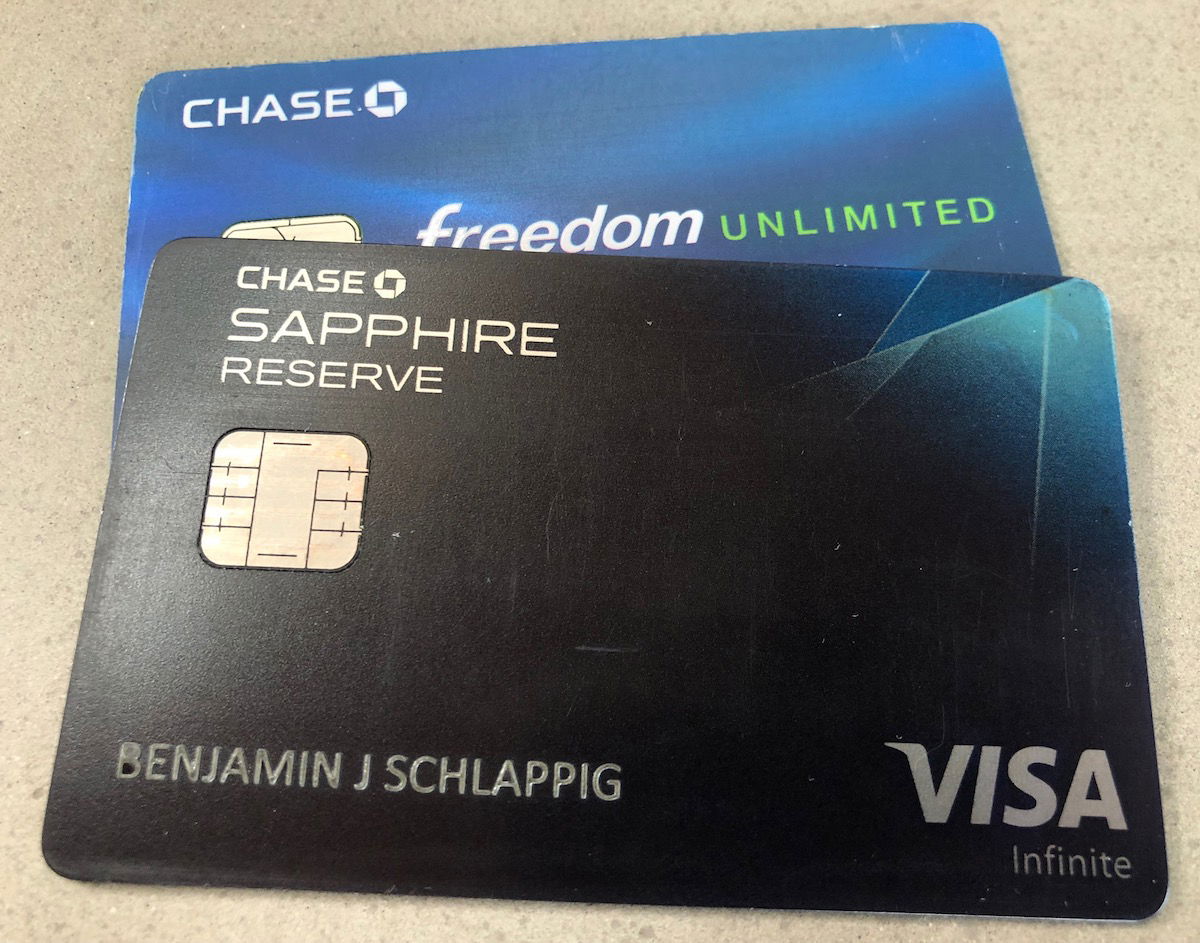
Showdown: Sapphire Preferred Vs. Sapphire Reserve
The Sapphire Reserve is the evolution of the Sapphire Preferred, so which of the two cards is better? Here’s a comparison of a few factors:
- Welcome bonus: Sapphire Preferred offers 60,000 points, Sapphire Reserve offers 60,000 points with the same $5,000 spend requirement within three months.
- Annual fee: Sapphire Preferred has a $95 annual fee, Sapphire Reserve has a $550 annual fee
- Points earning: Sapphire Preferred offers 3x points on dining, online grocery purchases, and select streaming services, 2x points on travel, and a 10% anniversary points bonus, while Sapphire Reserve offers 3x points on dining and travel
- Other perks: The cards have some overlap in terms of benefits, though the Sapphire Reserve has the edge by offering a $300 annual travel credit, a Priority Pass membership, access to Chase Sapphire Lounges, a TSA PreCheck or Global Entry fee credit every four years, the ability to redeem points for 1.5 cents each, and Visa Infinite perks
Long term I think the Sapphire Reserve could be worth it if you value lounge access. However, I think for many people, the Sapphire Preferred may be more compelling overall, and a better value — the card has some better bonus categories on spending (plus the 10% anniversary points bonus), and a $50 hotel credit, all with a lower annual fee.
How Does The Amex Platinum Compare?
Probably the most direct competitor to the Sapphire Reserve is The Platinum Card® from American Express (review), which has a $695 annual fee (Rates & Fees).
The Amex Platinum is a card I have as well, and I value it immensely. But I also don’t think it’s as well-rounded.
The card is potentially better for lounge access — it offers Amex Centurion Lounge access, Delta Sky Club® access, and a Priority Pass membership (with additional restrictions). It also offers a lot of credits, from up to $240 annual digital entertainment credit, to an up to $200 annual airline fee credit, to an up to $200 annual hotel credit, to a $200 annual Uber credit, to an up to $199 annual CLEAR® Plus credit, to up to $100 annual Saks credit. (Enrollment is required for select benefits)
Personally, I think the Sapphire Reserve is more well-rounded, and if you’re just going to get one of those two cards, that’s the one I’d choose. However, I also think both cards could be worth having.

How does the Capital One Venture X Compare?
The Capital One Venture X Rewards Credit Card (review) is another popular premium credit card. The card has a $395 annual fee, which is much lower than than you’ll find on other premium cards, and it offers a ton of value.
The Venture X offers a $300 annual travel credit, 10,000 anniversary bonus miles, a Priority Pass membership, access to Capital One Lounges, access to Plaza Premium Lounges, Hertz President’s Circle elite status, primary rental car coverage, cell phone protection, amazing authorized user perks, and more.
The value here is simply incredible, and I think this card is a no-brainer for anyone who is eligible. It’s an especially great card for families.

Bottom Line
The Chase Sapphire Reserve has revolutionized the premium credit card market over the past several years, and continues to be extremely compelling. The card offers a $300 annual travel credit, 3x points on dining and travel, the ability to redeem points for 1.5 cents each, a Priority Pass membership, access to Chase Sapphire Lounges, and much more.
If you want to learn more about the Chase Sapphire Reserve Card or want to apply, follow this link.
The following links will direct you to the rates and fees for mentioned American Express Cards. These include: The Platinum Card® from American Express (Rates & Fees).
Upon enrollment, accessible through the Capital One website or mobile app, eligible cardholders will remain at upgraded status level through December 31, 2024. Please note, enrolling through the normal Hertz Gold Plus Rewards enrollment process (e.g. at Hertz.com) will not automatically detect a cardholder as being eligible for the program and cardholders will not be automatically upgraded to the applicable status tier. Additional terms apply.
For Capital One products listed on this page, some of the above benefits are provided by Visa® or Mastercard® and may vary by product. See the respective Guide to Benefits for details, as terms and exclusions apply.

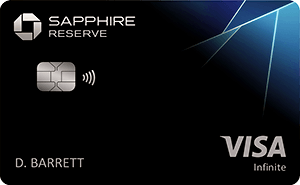




The Chase Sapphire line feels lost. 2x/3x used to be jaw dropping, but these days it's par for the course. Aside from having Hyatt as a transfer partner, it doesn't have much to offer that the competition doesn't. Amex and Capital One both offer 3x and 4x categories with similar annual fees.
There's also the card's design, which is reminiscent of a 90s-era school picture day. The Platinum/Gold/Green cards are iconic. The Venture X...
The Chase Sapphire line feels lost. 2x/3x used to be jaw dropping, but these days it's par for the course. Aside from having Hyatt as a transfer partner, it doesn't have much to offer that the competition doesn't. Amex and Capital One both offer 3x and 4x categories with similar annual fees.
There's also the card's design, which is reminiscent of a 90s-era school picture day. The Platinum/Gold/Green cards are iconic. The Venture X has a quiet luxury about it. I've never pulled a Chase Sapphire from my wallet and felt like a big shot.
After the degradation of Priority Pass benefits, can someone justify the effective $250 ($550 AF - $300 travel credit) cost of the CSR.
For 99.99% holders to get rid of this card is the easiest decision of their life.
The section on Priority Pass should be updated to note that the restaurant access is ending as of July 1, 2024. It's a significant value degradation, depending on what airports you use most often. It was enough to tip the balance for me to switch to the Preferred.
Question for anyone in the community. How long do I need to wait to apply for the CSR after canceling my CSP? I know you can’t have both at the same time. Thank you